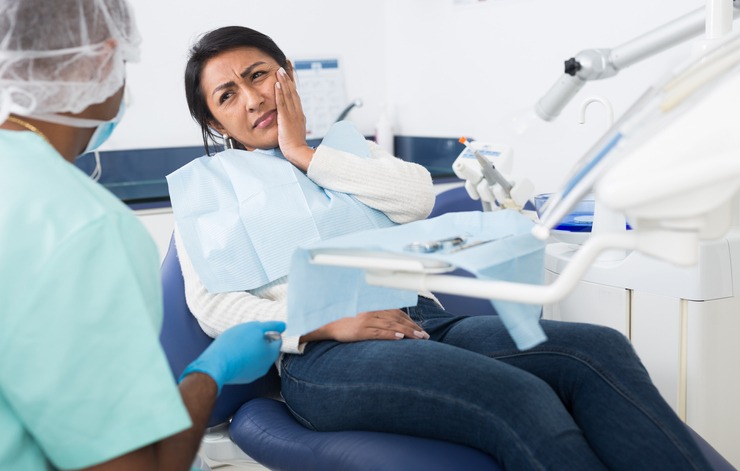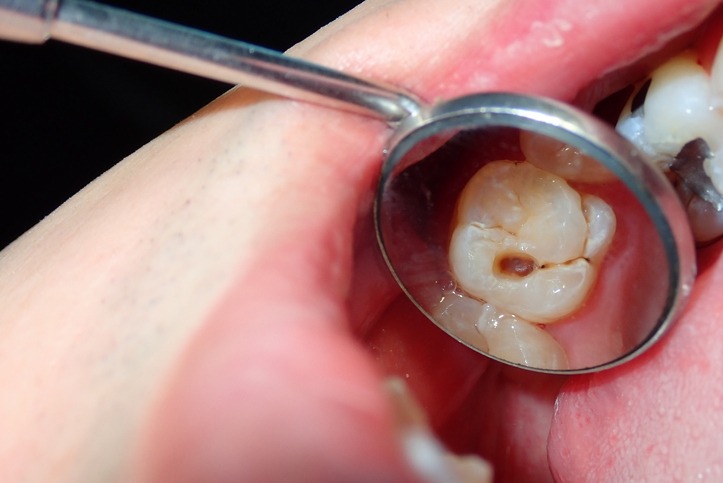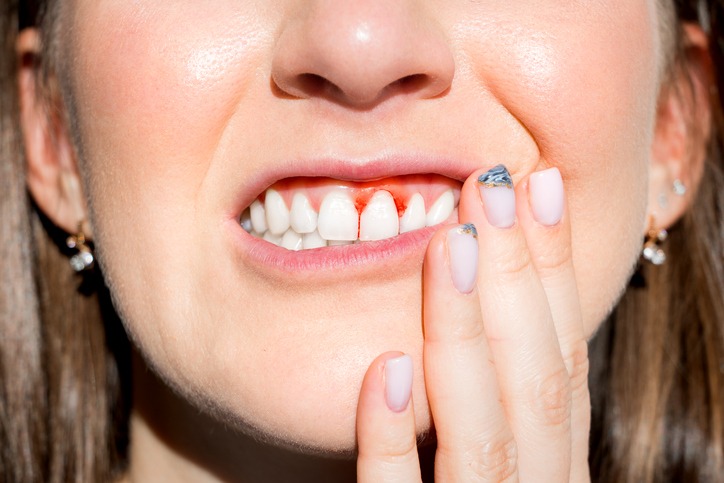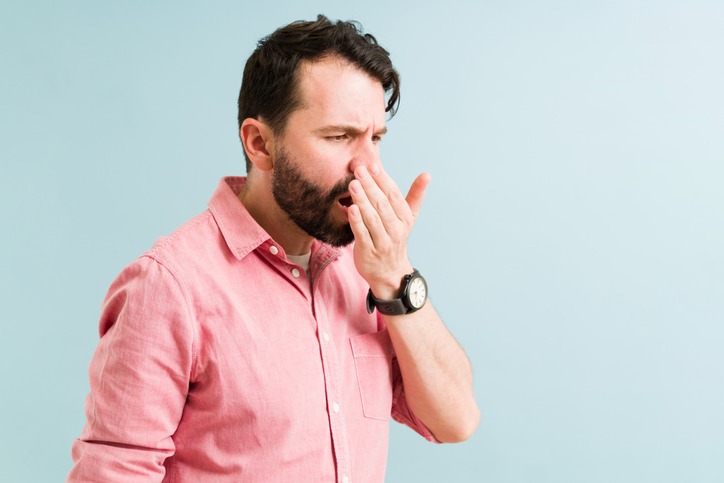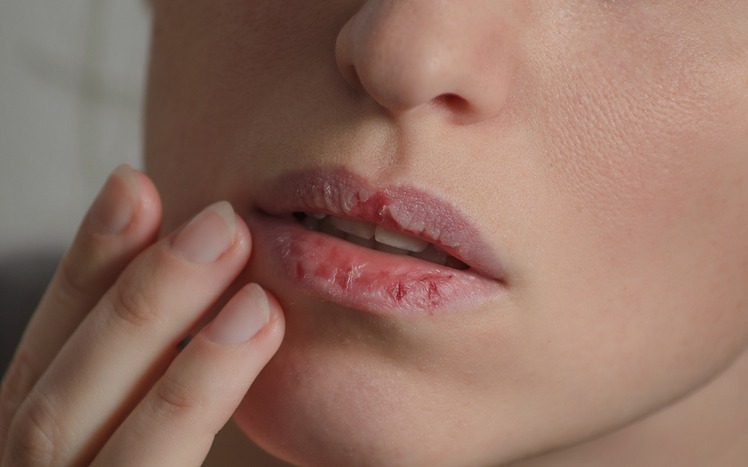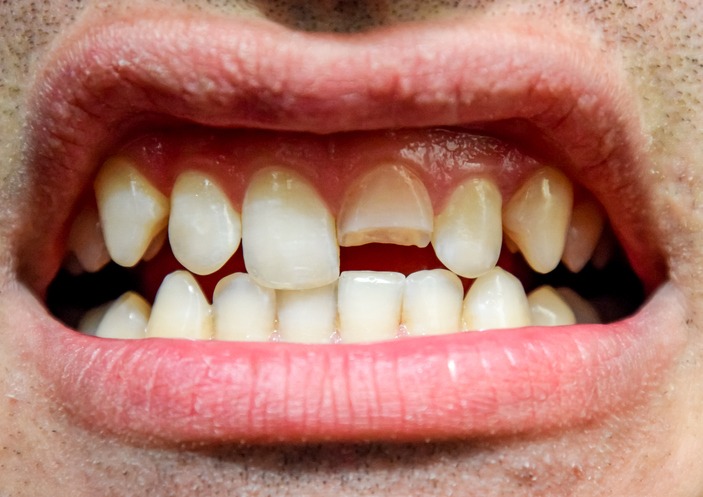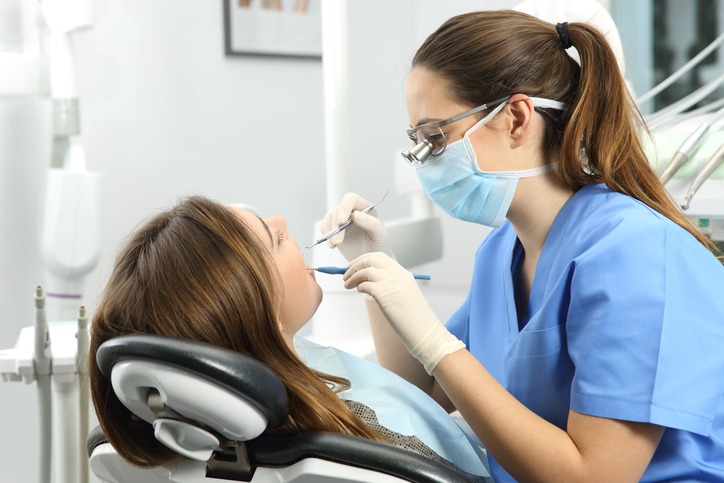Your overall health greatly depends on your oral health. In addition to increasing your self-esteem, a healthy smile is good for your overall health. The necessity of maintaining good oral hygiene is sometimes disregarded by many of us until dental issues become inconvenient or even painful. That’s why in this article, we are going to discuss dental health, exploring common dental problems that affect millions of people, and how you can prevent them.
This way, you’ll be able to understand the underlying causes of the most common dental problems and gain practical insights and strategies for achieving and maintaining a radiant and worry-free smile. If you’re ready, read on and discover the secrets of optimal dental health to ensure that your smile remains a source of pride and well-being throughout your life.
What are the Common Dental Problems?
There are many dental problems that can hamper the overall health of people. Some of them may affect your confidence and lower your self-esteem. These dental problems may occur because of bad oral hygiene, lack of proper diet, and other habits like drinking alcoholic beverages and smoking. To give you ideas, below are the common dental problems:
Tooth Decay
Tooth decay is also known as dental caries or dental cavities. The majority of patients probably present their dentists with this dental problem. In almost everyone’s lifetime, tooth decay has been a problem.
This condition occurs when bacteria form a film on the surface of teeth, which is referred to as plaque. From the sugars in food, the bacteria make acids that eat away at and irreversibly harm the enamel, or outer layer, of the tooth. After that, the acids begin to work on the softer dentin layer beneath the enamel.
The breakdown of the tooth may lead to cavities or holes in the teeth, which may also cause toothaches and sensitivity when you eat and drink hot, cold, or sweet things. When a person has tooth decay, he or she may also experience bad breath, black or brown spots on the teeth, and an unpleasant taste in the mouth.
Gum Disease
Gingivitis is the mild, early stage of gum or periodontal disease. Plaque accumulation is the cause of the bacterial infection. Common symptoms include red, puffy, and readily bleedable gums. Additionally, as you chew, you can have bad breath and severely sensitive teeth. Not brushing or poor brushing techniques can contribute to gum disease, as well as crooked teeth that are hard to brush properly. Aside from that, other risk factors include tobacco use, diabetes, and pregnancy. Note that gingivitis can be painless, and you may not notice it. That’s why regular dental checkups are important.
When gingivitis is left untreated, it may become a more severe form of gum disease, which is referred to as periodontitis. Infected gum pockets form at this point. This condition damages the bone and tissue that hold the teeth, as these can also become infected. Additionally, this could result in receding and shrinking gums, loose permanent teeth, a change in bite, an unpleasant mouth taste, and lingering bad breath.
Bad Breath
Bad breath is also called halitosis. It is among the most common dental problems and also one of the most distressing. It can be caused by various factors, such as poor oral hygiene, dry mouth, infection, acid reflux, medication, and cancer. Aside from those, one or more of the foods you eat could also be the reason for your halitosis, which include garlic and onion as the most common ones. Since the causes of bad breath are varied, dentists usually do a complete assessment and prescribe a course of action that will best fit your case.
Sensitive Teeth
Your teeth become sensitive to hot or cold meals and beverages when the enamel has worn away, and the dentin has been exposed. The dentin has tubes that connect to the nerve deeper inside the tooth. Drinking hot or cold liquids might cause severe pain because they can go via the tubes to the nerve.
Dentin hypersensitivity is another term for tooth sensitivity. It may also be caused by tooth decay. Aside from that, other possible causes include root infection, gum disease, worn-down crown or fillings, a cracked or broken tooth, enamel erosion, and receding gums. Others have sensitive teeth as the enamel layer of their teeth is naturally thin.
There are many types of toothpaste and mouthwash that are meant specifically for sensitive teeth. Dentists may also recommend a fluoride treatment, root canal, crown, or gum graft. For more tips and recommendations, you may also read our guide to Choosing the Best Toothpaste for Sensitive Teeth.
Receding Gums
Receding gums are usually caused by other common dental problems, and it may also lead to other issues if left untreated, such as losing a tooth. It’s because it exposes the delicate root of the tooth, making it vulnerable to damage. This condition can also be caused by a range of factors, such as poor oral hygiene, brushing the teeth too hard, high blood pressure, hormonal fluctuations in women, and smoking.
There are times when receding gums are also genetic, or the condition runs in your family. If you have receding gums, dental care for it includes a thorough cleaning of your teeth by a dental professional. Proper brushing techniques are also important. However, more severe cases may need to be treated with a gum graft or other dental surgery.
Root Infection
The root of your tooth can be infected with bacteria. This is particularly due to cavities, cracks, or fractures in the tooth. When you have a root infection, it may result in the destruction of the tooth’s structures and nerves as well as the eventual formation of abscesses.
Feeling a long-lasting and persisting throbbing toothache is one sure sign of root infection. The area of your mouth that is infected will be extremely sensitive to hot and cold food and beverages, making chewing and biting painful. There are also times when the area of the face around the infection becomes swollen.
A root canal is the solution for a root infection. It is a safe procedure performed by dentists. Some are afraid of this method, but it actually involves minimal pain as dentists use anesthetic while performing this.
Enamel Erosion
Enamel erosion is a dental condition that develops gradually, leaving the teeth both discolored and rounded-looking. The main cause of this problem is consuming lots of sugary and acidic foods, such as sweets and soda, over a long period. Sometimes, brushing your teeth too often, too hard, and too long may also contribute to this dental issue.
This condition leads to teeth that are very sensitive, weak, and more susceptible to cracks, cupping, and chips. When your teeth have suffered enamel erosion, the lost enamel can no longer be restored. But you can reduce any further enamel erosion by decreasing your sugary and acidic food intake and by using toothbrushes with softer bristles. You may also read our post about Choosing the Best Toothbrush for Sensitive Teeth for more tips and recommendations.
Dry Mouth
Anyone can experience dry mouth, particularly among the elderly. Cancer therapies, diseases of the salivary glands, injury to the nerves, and diabetes are a few causes of dry mouth. Other medications may also bring on dry mouth and dry throat. You can relieve this condition by taking sips of water throughout the day. Avoiding substances that are known to be drying also helps, and these include sweets, alcohol, caffeine, and tobacco.
Cracked or Broken Teeth
Most of the time, cracked or broken teeth are caused by injury, mouth piercings, chewing hard foods, and grinding of teeth while sleeping. Having a cracked or broken tooth can be painful, depending on the extent of the damage. But no matter how bad you think the crack or chip is, it is important to have it examined and treated by a dentist as soon as possible. Some of the options for fixing this dental issue include a crown, veneer, or the use of tooth-colored filling.
Teeth Grinding
Teeth grinding is also referred to as bruxism. It is when you grind your teeth when you sleep at night, but it may also occur while you are awake. This condition may damage your teeth, cause you to develop pain in your jaw, and may also lead to earaches and headaches. People who grind their teeth usually have an abnormal bite, while others have a new filling or crown that is higher than their other teeth.
Also, some people suffer from bruxism when they have a sleep disorder, are stressed, or anxious. Therefore, treating these underlying issues may help ease or stop this dental condition. You can also visit your dentist for a custom-made mouthguard that you can use at night to protect your teeth. This may also help correct bite issues if you have any.
How to Prevent Common Dental Problems
After learning about common dental problems and their possible consequences, it is time to learn about the tools and techniques to prevent them. Prevention is more effective and less costly. It is also less painful compared to treating dental issues after they have occurred. Below are some of the ways to prevent common dental problems:
Oral Hygiene Practices
Maintaining excellent oral hygiene is important when it comes to preventing dental problems. Your daily dental care routine plays an essential role in keeping your teeth and gums healthy. Below are the different oral hygiene practices that you need to know about to avoid dental issues:
- Brushing Techniques: Proper brushing is fundamental. It is also important to choose the right toothbrush and toothpaste, depending on the condition of your teeth. The correct brushing technique includes circular motions and gentle pressure to remove plaque and debris effectively.
- Flossing and Interdental Cleaning: Flossing is also important as it helps in removing hidden food particles and plaque in between your teeth. There are different flossing methods that you can use, and you may also utilize interdental brushes or water flossers if you have braces or other specific needs.
- Mouthwash Usage: There are many types of mouthwash available, such as fluoride mouthwash or antiseptic mouthwash, each having its own benefits. But note that a mouthwash should complete and not replace your brushing and flossing procedures.
- Tongue Cleaning: Cleaning the tongue is also important to remove bacteria and prevent bad breath. There are tongue scrapers or brushes that are effective tools when it comes to tongue cleaning.
- Toothbrush Maintenance: You should always rinse your toothbrush after use. It is also ideal to replace it every 3 to 4 months.
- Avoiding Overzealous Brushing: Caution against brushing too aggressively is important, as it can lead to enamel erosion and gum recession. Gentle brushing is a must to protect your teeth and gums.
Regular Dental Checkups
Aside from your daily oral hygiene routine, regular dental checkups are also important when it comes to preventive dental care. Visiting your dentist can help in identifying and addressing possible issues before they become major problems. Dentists can detect problems early, provide professional cleanings, and offer personalized advice for maintaining optimal dental health.
It is ideal to visit your dentist every six months to once a year, depending on your oral health needs and risk factors. It is a good idea to consult your dentist for a personalized schedule. There are also a lot of procedures that you may experience when you visit your dentist, depending on your dental health. These may include professional cleanings, x-rays, and even oral cancer screenings.
Your dentist may also provide you with personalized advice on oral hygiene practices, dietary choices, and other lifestyle factors that can affect your dental health.
Diet and Nutrition
Your diet also plays an essential role in your overall health, which includes the well-being of your teeth and gums. When you eat and drink can either promote or hinder your dental health. Some of the foods that you need to avoid for dental health include sugary foods and drinks, acidic foods and drinks, and sticky or hard foods. What you should consume for dental health, on the other hand, includes foods rich in calcium, fruits and vegetables, and water.
Meal timing is also important for your dental health. Avoid frequent snacking, as this can expose your teeth to acids and sugars throughout the day. Proper hydration is also essential to avoid dry mouth, which may contribute to dental problems. A balanced diet that includes all essential nutrients to support your oral health and overall health is a must.
Lifestyle Factors
In addition to oral hygiene and diet, different lifestyle choices and habits can also influence your dental health significantly. Below are some of the lifestyle factors that may impact your teeth and gums:
- Smoking and Tobacco Use: Smoking and tobacco use have detrimental effects on your dental health. This includes an increased risk of gum disease, tooth decay, and oral cancer. Therefore, as much as possible, limit your smoking or try other techniques for quitting smoking or using tobacco products.
- Alcohol Consumption: Drinking alcoholic beverages also have negative effects on oral health. It’s because these drinks promote dry mouth and an increased risk of oral cancer. That’s why drinking only in moderation and responsible alcohol consumption is very important.
- Stress Management: Chronic stress may lead to dental problems like bruxism and TMJ disorders. Therefore, it is important to find stress reduction techniques to avoid these issues. You may try exercise, counseling, or meditation.
- Oral Piercings: If you are thinking of getting oral piercings, carefully consider the potential consequences, such as chipped teeth, infection, and gum damage.
- Sports and Mouthguards: If you are into sports, wearing mouth guards may help protect your teeth from injuries. Custom-fitted mouthguards from dentists can provide optimal protection for your teeth.
- Medications: Certain medications may cause dry mouth. If you are experiencing dry mouth due to specific medicines, it is important to talk to your doctor about it.
- Regular Exercise and Hydration: Regular exercise can contribute to overall health, including circulation and immune system function, which can benefit oral health indirectly. Staying hydrated is also important, especially during physical activities, to prevent dry mouth.
Conclusion
In the world of dental health, prevention truly is the best medicine. By understanding common dental problems and embracing effective preventive strategies, you hold the key to a healthier smile and a happier life. Remember, your daily choices matter, from brushing and flossing to regular dental checkups, mindful eating, and lifestyle adjustments. Your smile is a reflection of your overall well-being, so make it a priority. Start today, and enjoy the benefits of a vibrant, trouble-free smile for years to come.

